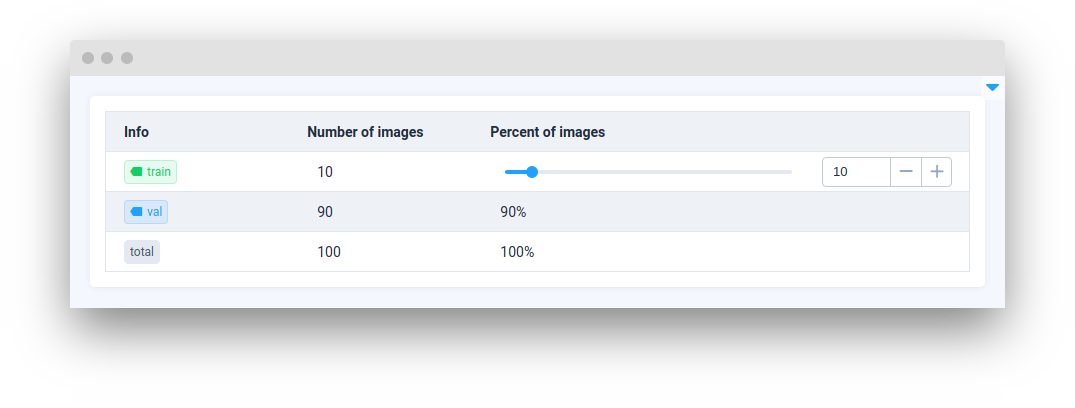RandomSplitsTable
Introduction
RandomSplitsTable widget in Supervisely allows users to create random splits of their data for training, validation, and testing purposes. The widget enables users to define the percentage of data they want to allocate to each split, and then randomly assigns images or annotations to each split. This widget is particularly useful for machine learning projects, as it allows users to easily manage their training, validation, and testing data without having to manually split the data themselves. RandomSplitsTable widget provides a flexible and convenient way for users to organize their data splits, and can be customized to match the requirements of their project. RandomSplitsTable widget is a valuable tool for improving the accuracy and efficiency of machine learning projects that require data splits.
Function signature
Parameters
| Parameters | Type | Description |
|---|---|---|
|
| Number of items to split |
|
| Start |
|
| Disable widget |
|
| ID of the widget |
items_count
Determine number of items to split.
type: int
start_train_percent
Determine start % to split items. If start_train_percent not in range [1; 99] raise ValueError.
type: int
default value: 80
disabled
Disable widget.
type: bool
default value: False
widget_id
ID of the widget.
type: str
default value: None
Methods and attributes
| Attributes and Methods | Description |
|---|---|
| Returns the result of separating items |
Mini App Example
You can find this example in our Github repository:
ui-widgets-demos/tables/005_random_splits_table/src/main.py
Import libraries
Init API client
First, we load environment variables with credentials and init API for communicating with Supervisely Instance:
Prepare items count
Initialize RandomSplitsTable widget
RandomSplitsTable widgetCreate Button and Text widgets
Button and Text widgetsCreate app layout
Prepare a layout for app using Card widget with the content parameter and place widget that we've just created in the Container widget.
Create app using layout
Create an app object with layout parameter.
Add function to control widget from code
Last updated




